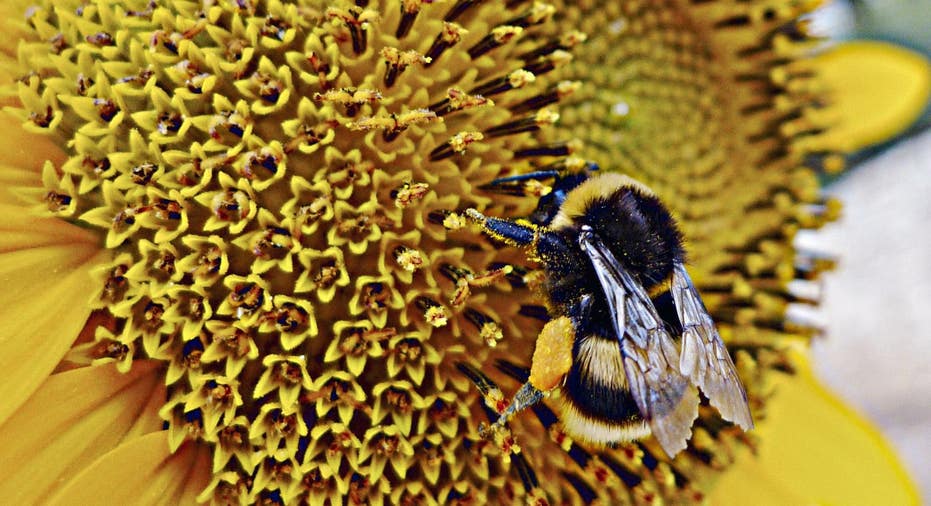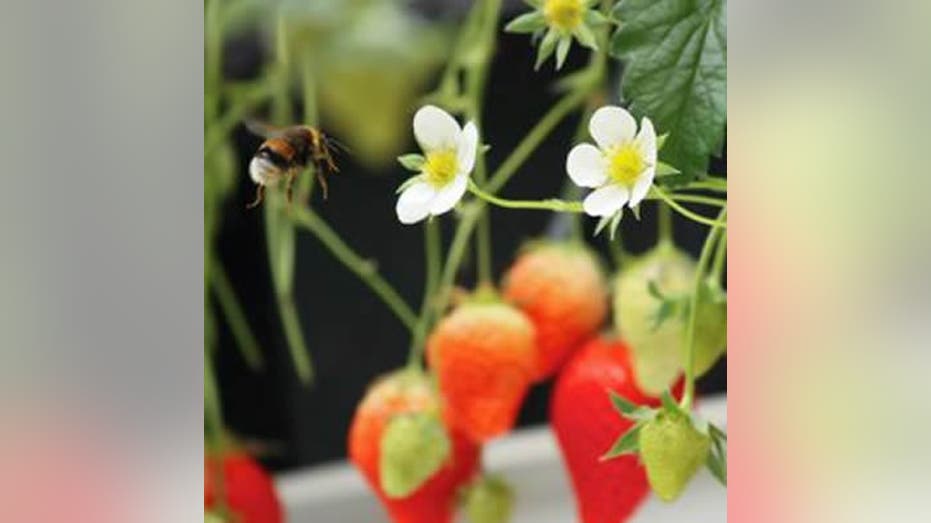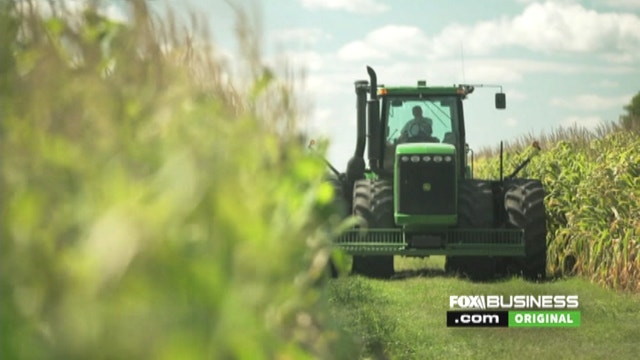Start-Up Bets on Bumble Bees to Solve Global Food Shortage

The world’s population is exploding and is expected to reach 10 billion people in 2050. Global farmers can’t keep up with demand, raising fears that the world could face a food shortage, and more people are relying on controversial GMOs to feed themselves as a result.
Bee Vectoring Technologies (BVT), a Canadian based start-up with operations in California, says it can help farmers save more crops from pests by using bumble bees.
“We have developed a technology that the control agent actually gets attached to the bee and as the bee goes to feed and pollinate the crop that control agent gets transferred right to the flowering plants,” said BVT CEO Ashish Malik during an interview with FOXBusiness.com. Malik left Bayer’s Crop Science division this summer to focus on his new company.
BVT has already started trial runs with strawberries in Florida and is hoping to expand to indoor tomatoes, sunflowers and almonds upon approval from the Environmental Protection Agency, which it expects to receive in 2018.

The company says this way of farming uses less water and produces minimal waste, unlike what typically happens with big commercial sprayers used on crops today. The biological control agents are also natural and don’t cause “any harm” to the bees or any unwanted pesticides on consumers’ food, according to Malik.
Still, there are a lot of problems in the bumble bee community. According to the U.S. Fish and Wildlife Service, bees are dying at an alarming rate, forcing the agency to recommend for federal protections for certain bumble bee populations. The rusty patched bumble bee population, for example, has been decreasing at a rate upwards of 90% since the late 1990s due to disease, pesticides, climate change and habitat loss.
However, BVT says it doesn’t use “native bumble bees,” but rather ones that are grown commercially for use on crops.

While bees may hold the key to the global food shortage, two of the world’s biggest companies are betting genetically modified organisms (GMOs) are a better solution.
German pharmaceutical giant Bayer and U.S. seed maker Monsanto (NYSE:MON) are merging in a $66 billion tie-up which could create an agricultural company that has control over a quarter of the world’s genetically modified seeds and pesticides — if the deal passes regulators.
Both CEOs warn that GMOs are needed to feed the growing population around the world.
“If you look at humongous challenges that growers are confronted with of having to produce evermore on limited acreage in order to feed ever-growing populations, our purpose is to bring better solutions faster to growers so they can increase yield and with that contribute to feeding a rapidly growing population,” Bayer CEO Werner Baumann told FOX Business Anchor Liz Claman back in September.
Though Malik says he doesn’t think GMOs are the “answer to all of our food problems” and doesn't "vouch for them over fresh produce," he hopes to partner with big agriculture technology firms in the future once his start-up has matured.
“We would love to take advantage of the marketing muscle that they have and the reach that they have in different crops around the world, where frankly, we would never be able to get to on our own.”




















